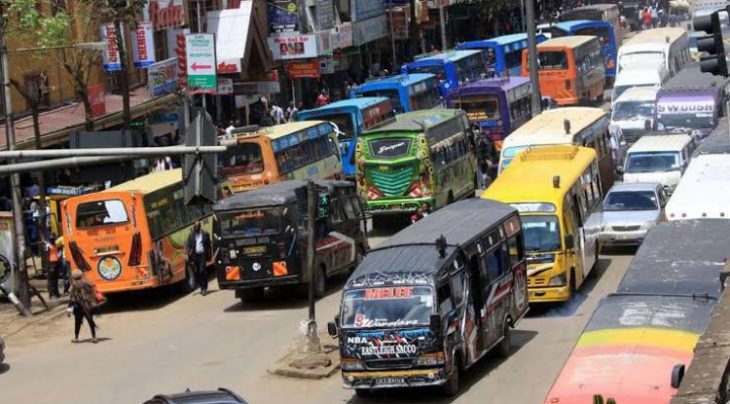Crisis deepens in Haiti as Kenya-led mission falters, new report

The humanitarian crisis and security in Haiti has reached critical levels amid reports of challenges in terms of funding, institutional articulation and coordination with local authorities.
Though the Kenya Police-led Multinational Security Support (MSS) mission in Haiti has been on the ground for the last one year, the gangs have increased their power and territorial control.
At least 1,617 people were killed in the first quarter of 2025, according to The Global Initiative Against Transnational Organized Crime (GI-TOC), indicating a potential annual trend that is still rising.
In February and March alone, 1,086 people were killed and 383 others injured.
In 2024, at least 5,601 people were killed in Haiti, an increase of over 1,000 from 2023 with more than 4,000 of these deaths occurring after the deployment of the MSS.
The UN Special Representative for Haiti, Maria Salvador, warned that the magnitude of the violence has sown panic among the Haitian population and told the Security Council to step up international support. While briefing the UN Security Council in New York on April 21, Salvador also warned that Haiti government alone could not deal with the crisis, adding that without sufficient and predictable funding, even a minimal UN presence may become unsustainable.
“I must be very frank, responsible and honest: no amount of effort by the Haitian government will be enough to significantly reduce the intensity and violence of criminal groups,” she said adding that all member states must increase support to the forces, not as a matter of choice, but of necessity.
“We are approaching a point of no return. As gang violence continues to spread to new areas of the country, Haitians experience growing levels of vulnerability and increasing skepticism about the ability of the state to respond to their needs,” she added.
The gangs have targeted Kenscoff, the last road out of Port-au-Prince not fully under gang control, and advanced simultaneously into Delmas, downtown Port-au-Prince, and Pétion-Ville -areas previously spared -deepening the city’s destabilisation.
Some of the recent attacks by the gangs include the seizure of Mirebalais where over 500 inmates were freed in the fifth prison break in under a year.
“The recent killing of two Kenyan police officers in February and March in Port-au-Prince, with a third taken hostage, threatens to embolden MSS critics and fuel anti-deployment sentiment,” GI-TOC said.
On May 2, the US Department of State announced the designation of Viv Ansanm and Gran Grif as Foreign Terrorist Organizations (FTOs) and Specially Designated Global Terrorists (SDGTs).
Rethink strategy
The Viv Ansanm is a group formed in September 2023 as a coalition of gangs through an alliance between the two main gang factions operating in Port-au-Prince, G-9 and G-Pép.
According to the GI-TOC, the MSS is also in a delicate situation due to the political realignment in the US and paralysis in international aid.
“In addition to urgent financial support, a strategic redesign is required to finally establish the operational and tactical foundations of the mission, rethink its collaboration with the Haiti National Police, and enable it to adapt to the situation in Haiti, which is on the brink of collapse,” GI-TOC said.
Moreover, the MSS and the HNP, whose cooperation is hampered by problems of coordination, information exchange and inadequate equipment, are facing gangs that are better armed, more organized and larger. In June, a group of 400 police officers is expected back in Nairobi, upon the expiry of their one-year contract with the mission.
And only 751 of the planned 1 000 have been deployed. Other contributing countries had pledged to bring the total up to 2 500, but by May 2025 just 40 per cent of that figure had been realised. The GI-TOC has said in addition to political and financial considerations, the MSS also faces logistical obstacles. The mission’s base, located on the tarmac of Toussaint Louverture International Airport in Port-au-Prince, cannot be extended at present, preventing additional deployments.
Gangs control 90 per cent of the Haitian capital, almost surrounding the MSS base, and at least 261 officers assigned to Haiti are stranded in Nairobi due to a lack of space and technical support, according to the authorities.
Some of the officers have claimed that the guns and armoured personnel vehicles are either inadequate or substandard, exposing them to further risks.
The GI-TOC’s research also indicates that, beyond units and equipment, the MSS lacked initial operational and tactical support to plan its deployment, a situation that continues.
“The result is that the design of the mission no longer reflects the reality of the situation,” it states.
During a UN Security Council meeting on Haiti on 21 April, the US indicated that it could withdraw support for the MSS, and called on other donors to contribute. The donors are yet to.
Equally, several deadlines are approaching, including the salaries of around 1 000 international staff and an upcoming payment of US$200 million to the service provider responsible for managing the operational base.
The Kenya National Security Advisor Dr Monica Juma had earlier said that the MSS has enough funds in the UN coffers to last until September this year but also urged members to boost the mission staffing levels, warning that it was operating at suboptimal level.
Nairobi is planning a delegation to Haiti and neighbouring countries that initially promised to contribute police officers to Haiti, and the Prime Cabinet Secretary Musalia Mudavadi is currently in the Dominican Republic to prepare for the meeting. Mudavadi also met the US Secretary of State Marco Rubio, where the issue of possible freezing of funds was discussed.
Kenya risks losing upwards of US$35 million in reimbursement, after spending taxpayers’ money on the mission over the past nine months.
“The mission needs to be placed at the centre of its strategic agenda, with a focus on tactical and operational support as well as material assistance. Without this, the MSS faces imminent failure, representing a shameful missed opportunity and a catastrophic abandonment of the Haitian people,” GI-TOC warned.













